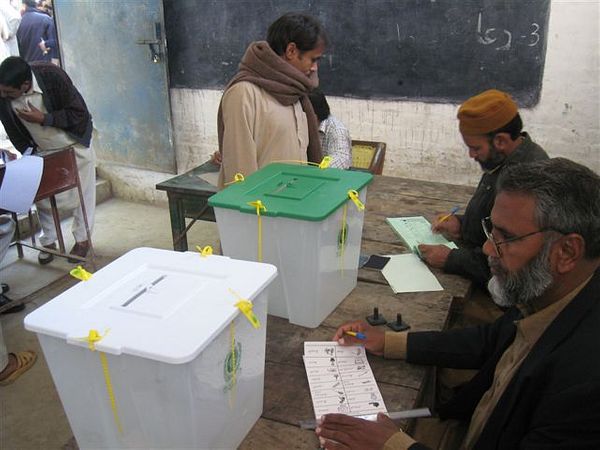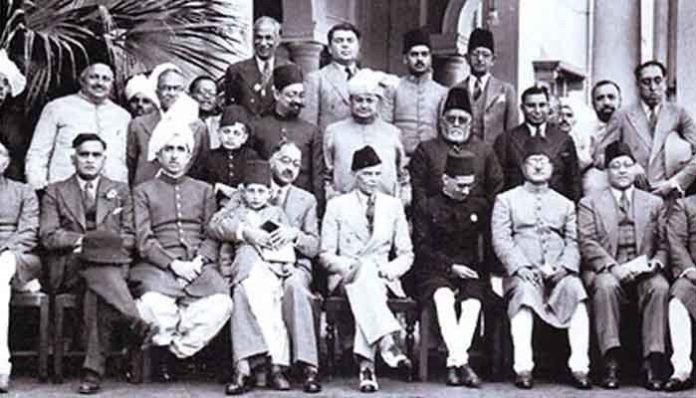Dear Readers,
Under the able leadership of Muhammad Ali Jinnah the Muslims of India attained a separate homeland, Pakistan. Millions sacrificed their lives, homes and hearth and marched towards their new home brimming with renewed hope for a better life and their dreams being fulfilled, but having to begin new life in adverse circumstances the new State had to struggle for survival. The bureaucratic setup was inherited from the British and as the people struggled to achieve their objectives, the bureaucracy, in pursuit of power contrived to keep the people divided. National integration was thus elusive from the beginning and nation building has remained a difficult process. During its almost seven decodes of existence, Pakistan was under Martial Low for a total of 32 years, when civilian govts took over they were inept for the most post. Despite the changes in govts one aspect remained constant- the miserable lot of the people remained unchanged. Almost all political parties that came to the fore after our founding fathers passed away suffered from regionalism, factionalism and lock of vision, the shifting of power from political to civil military establishment plus the appearance of regional and ethnic forces threatened Pakistan’s national unity.
Today there is lock of consensus on vital notional issues in Pakistan. Provinces do not trust each other and our growth potential remains unexploited because of distrust among the federating units. Corruption and nepotism is rife, terrorism and religious extremism hove spread like a contagious disease. The present political scenario is mired in huge challenges from both within and outside the country, many being of our politician’s own making, this has served to raise external and internal l challenges for society and the State. For the benefit of readers my article titled “WE NEED ANOTH ER SEP 6 MOMENT” is being reproduced.
The ideals expressed by our founding fathers still remain on elusive dream. Among the numerous challenges Pakistan is facing today, terrorism, religious extremism ore competing with corruption, increasing gap between rich and poor, illiteracy, poverty, etc. Soon after Liquate Ali Khan’s assassination in October 1951 a new crop of political managers emerged, bureaucrats-turned-politicians. They were joined after the 1958 coup by soldiers-turned-politicians, followed thereafter by businessmen-turned-politicians after the 1977 coup. Even retired superior judiciary persona hove joined the new fuedals from time to time. The rise to prominence of these nouveau politicians, some of whom engaged the media by means, as a very successful self-protection mechanism, has drastically changed the political landscape.
The once peaceful Pakistani society has been ravaged by, forces inimical to it, force-multiplied by a corrupt political leadership who hove foiled the people. Along with religious extremists they have created fissures and chaos to exploit the poor and the weak. While each of our problems needs a separate treatment, the underlying common feature of centrifugal political forces in a state is a sure sign that national solidarity and coherence is missing. The 1971 break-up of Pakistan should have induced change the secession pointed to factors other than the cultural and language barriers preventing notional coherence: economic development, disparity and Pakistan’s centralised federal system. Having learnt no lessons, Pakistan continues to face separatist tendencies in Balochistan, Sindh and even in Karachi, with persistent demands for federal reform despite the much trumpeted 21st Amendment that in fact has unfortunately become an obstruction to national unity. Combatting both economic underdevelopment and unequal development has to be a central task.
The inconsistencies that should have been addressed are contained in two opposite concepts and state models: one, the concept of a nation state that is based on common territory and the idea that all people living within the borders of the state and on the territory are equal citizens of that state. The second nation concept has been produced indigenously in that the subcontinent is based on religion. Allama Iqbal rejected the idea that a something material like territory could be the basis of a Muslim polity, in his Presidential address to the Session of the Muslim league 1930 he said: “Is it possible to retain Islam as an ethical ideal and to reject it as a polity in favour of national polities in which religious attitude is not permitted to play any part? This question becomes of special importance in India, where the Muslims happen to be a minority. The proposition that religion is a private individual experience is not surprising on the lips of a European. In Europe the concept of Christianity as a monastic order, renouncing the world of matter and fixing its gaze entirely on the world of spirit, led by a logical process of thought, to the view embodied in this proposition,” unquote. Thus the idea of a Muslim nation is not based on territorial coherence but on slam as a belief, as a value system, as a social order and on equitable economic system.

For national coherence in a State, democracy has only survived in fits and starts. It cannot thrive unless we rid ourselves of the fuedal system, the majority base from which politicians can emerge. The major products of feudalism are nepotism and corruption. Nepotism ensures that the educated middle class is largely excluded from the political process, the local feudal landlord allowing his people to vote only for candidates chosen by him. Most of our politicians do not come to power through the will of the people, the sham of a democracy that exists is fuelled by corruption. That is why the National Census is avoided so that the new demography does not change the balance of power from the rural to the urban areas.
Unity among all the people belonging to the different sects of Islam and tolerance/respect for the non-Muslims was one of the Quaid’s golden principles. Discipline he said was essential for growth. With a poor image on the international level, even within the country we find people disillusioned and frustrated by the state of affairs. This is accentuated by paid “doom and gloom” specialists in the media.
Diversity does not mean complete difference, underneath all the diverse features there are real and realizable common interests, values and other features which are necessary interpretation of Islam’s central concept of Tauhid. All ethnicities and cultures in Pakistan should keep their languages and cultural conduct, beliefs and systems of worship but would join to their other identities the national identity of being Pakistani. Restructuring the federal system in a balanced manner, we must promote the understanding amongst all stakeholders that Pakistan can develop into a strong. And coherent nation state only with unity based on a just and equitable society.
Rampant corruption has mode our society less tolerant due largely to the politics of deceit, hypocrisy and religious bigotry. One’s religious faith, or lack of one, has become sufficient to warrant execution and murder. There are motivated reasons for not fully implementing the National Action Plan leaders like Mian Nawaz Sharif with undeniable majority in Punjab could (and should) have made a difference, but self-interested policies, choosing incompetents as aides, allowing nepotism and corruption to flourish, stifling electoral dissent, encouraging electoral fraud and dependence upon religious extremists has cos doubt about his electoral mandate.
The 1965 war with India was a rare and memorable moment for solidarity and coherence in Pakistan, patriotism and emotion swept across the entire country (East and West Pakistan). Pakistanis rushed to contribute towards the war cause, poets wrote nationalistic songs, stirringly rendered by singers that touched the heart and soul of a rejuvenated and united nation. Standing behind their Armed Forces the masses set aside ethnic, cultural and political differences for a truly national cause that spread across the political divide like an unstoppable wildfire. Prices of all essential commodities and overall ratio of crimes went down.
With the present democratic system not delivering despite our soldiers (and citizens) rendering tremendous sacrifices, do we deliver the State to chaos and anarchy? Our rulers bind the military to adhere to the Constitution without respecting it themselves. While the superior judiciary has called bad governance, corruption and a lack of merit our real problems, how and when will be rid of the corrupt alternately occupying the halls of power according to the norms of our sham democracy? We need another Sep 6 moment, not to target external enemies but the enemies within.




